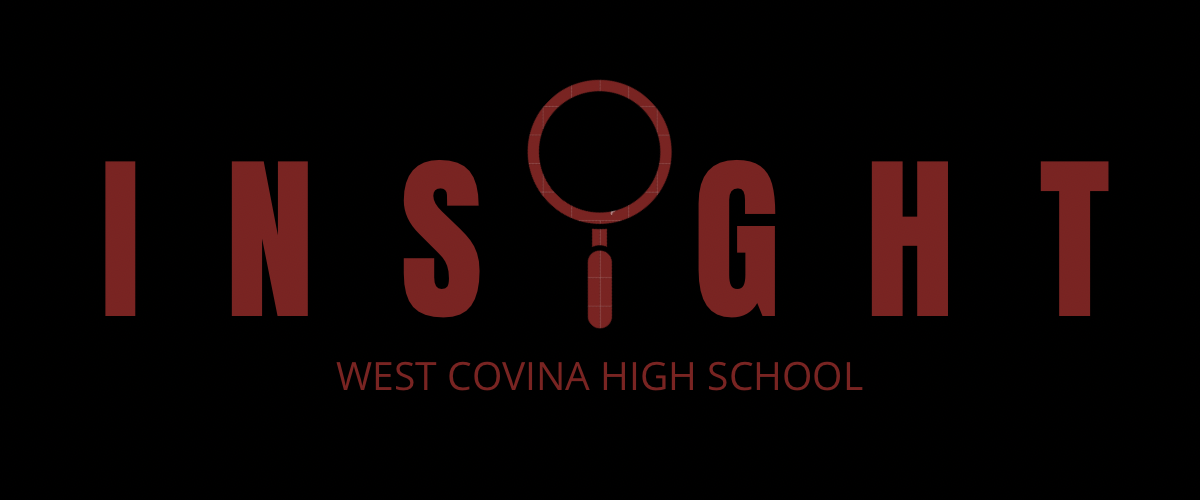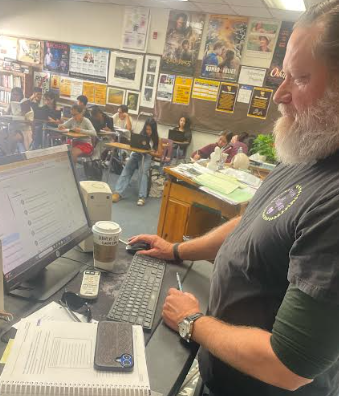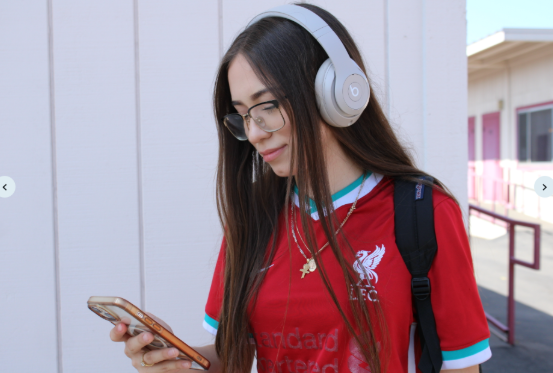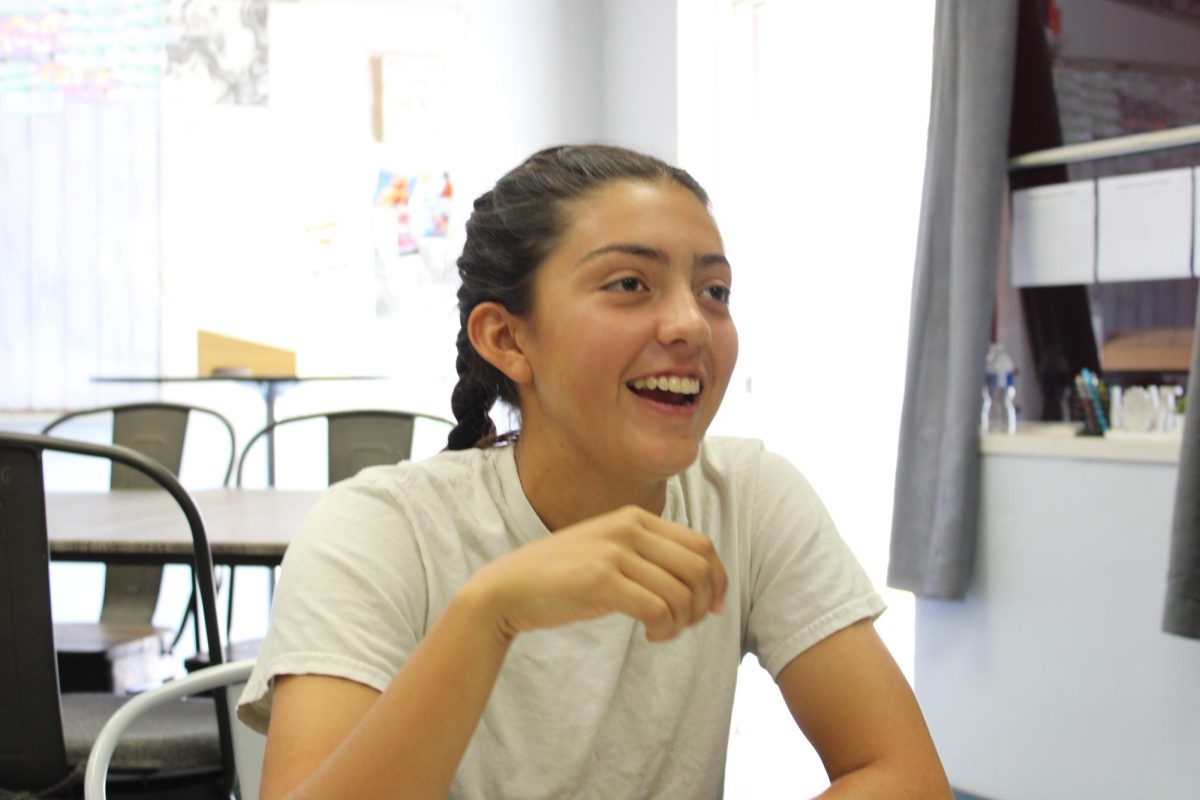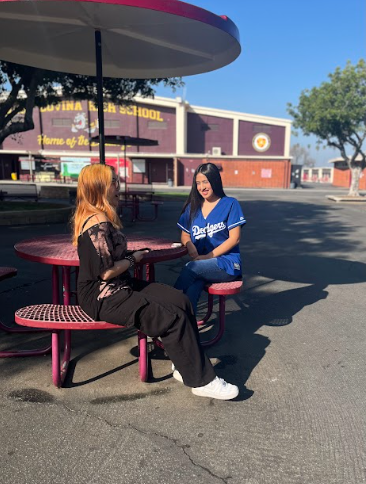
Every year, the connections and relationships between people have been observed to end around a certain season, which often tends to be before or during winter from December to February. These breakups can happen between friends, family, and most commonly, couples. This phenomenon is referred to as “breakup season,” a widely used term used by teens and young adults, and isn’t usually the topic of deep conversation. Nathan Isaac, a freshman who has experienced breakup season, shares his thoughts on this phenomenon.
“In my eyes, breakup season could really be anytime, there really is no specific time that everyone breaks up,” said Isaac.
Around winter is when the new year starts to approach as well, sophomore Mya Lopez, who has also experienced breakup season, provides her perspective.
“To me it’s more about the new year coming up and couples just having different perspectives for it; choosing to end relationships, maybe they’re wanting something different, because new year, new me. Breakup season is the time where people start to think about whether or not the person they’re in a relationship with is right for them or otherwise” said Lopez.
Many people, varying from teens to adults, experience a change or drop in mood and even in some cases, different levels of depression during the winter, which is around the same time breakup season becomes evident. This is referred to as seasonal affective disorder, or SAD, and is a type of depression. It is more widely referred to as seasonal or winter depression. During winter, there are shorter days and less sunlight which triggers chemical change in the brain and results in low serotonin levels. It could be argued that this reduction of serotonin and changes in mood could be a factor in winter break-ups. Isaac describes his take on the connection between these two occurrences.
“Seasonal depression plays a role in this because sometimes people get really affected by breakups and this can send them into a state of depression, which can last a ‘season’ for them which could be why it’s referred to as seasonal,” said Isaac.
It could be assumed that breakup season mostly refers to romantic relationships, however, the effects of breakup season are not limited to couples. Although breakup season stems from connections severed between couples, there are aspects like seasonal depression or changes in an individuals’ perspective due to the wintertime that can affect a variety of relationships and dynamics between friends, family, and more commonly, romantic partners. Lopez expresses how breakups can happen between friends during this time as well, sharing her personal experience and opinion.
“There were times where I could tell my friends were being fake toward me, trying to push me away while trying and pretending to be nice about it; I ended up deciding I just didn’t want to be friends with them. I was happy to leave that friend group because it was kind of toxic and it just wasn’t for me,” said Lopez
Lopez had described her personal experience with a romantic breakup, as her past significant other making certain choices that she did not want to be around or influenced by. Her parents and friends had advised her to end the connection because of this potential influence. She expands on this and shares her thoughts.
“I experienced a recent breakup, in november, beforehand I had been thinking about how the new year was coming up and I started to ask myself if the relationship is what I wanted or how I wanted to be treated, like if the relationship was something I wanted to continue to be in. I see my breakup as a positive change for me but he was just going through a tough time…I didn’t want to be a part of that and in the end my parents made me end things but I believe it was for the best,” said Lopez.
It is understandably difficult to fully process a severed connection, however, students often raise the point that the end of a relationship, whether platonic or romantic, can benefit oneself in ways that are usually looked over if one’s mindset remains more negative instead of positive. Isaac explains his thought process about the benefits of breakups while considering his own experiences.
“I believe people can benefit from breakups, me personally, I take advantage of breakup season to have time for myself and to prepare for what’s to come in my life by learning from my mistakes in the past,” said Isaac.
The common inquiry about breakup season is how to cope with a breakup, how to keep growing and thriving despite the end of a relationship. Lopez shared advice and elaborated on how she had coped personally.
“Focusing on yourself is important, get to know yourself more, do better in the future, and definitely just have fun with your friends and family because they are there to support you. My family was there for me the most after my breakup, they would check up on me and take me out to my favorite food places. Most of my friends too, they would always tell me to hangout and to forget about him,” said Lopez.
Other than social support systems, hobbies and interests have also proved beneficial in the coping process. Isaac shares how he had chosen to cope after his break up by putting his energy into something he enjoys, highlighting how it had benefited him and aided him in coping and continuing on.
“Everyone has their own thing that takes their mind off of a breakup and for me it’s playing guitar. It helps me a lot in dealing with breakups and just in any situation in general that has me stressing out. Whenever I play guitar, it puts me at ease and helps me forget about problems I have,” said Isaac.
Lopez provides her final comments, takeaways, as well as an emphasis about moving on and dealing with breakup season along with the hard times and feelings that come with it.
“Everyone can experience breakup season and everyone experiences things differently. It really is common in high school to experience these events and emotions but even during this and the hard times, everything will be okay and it will turn out good in the end no matter how much it hurts now or how hard it may seem,” said Lopez.

